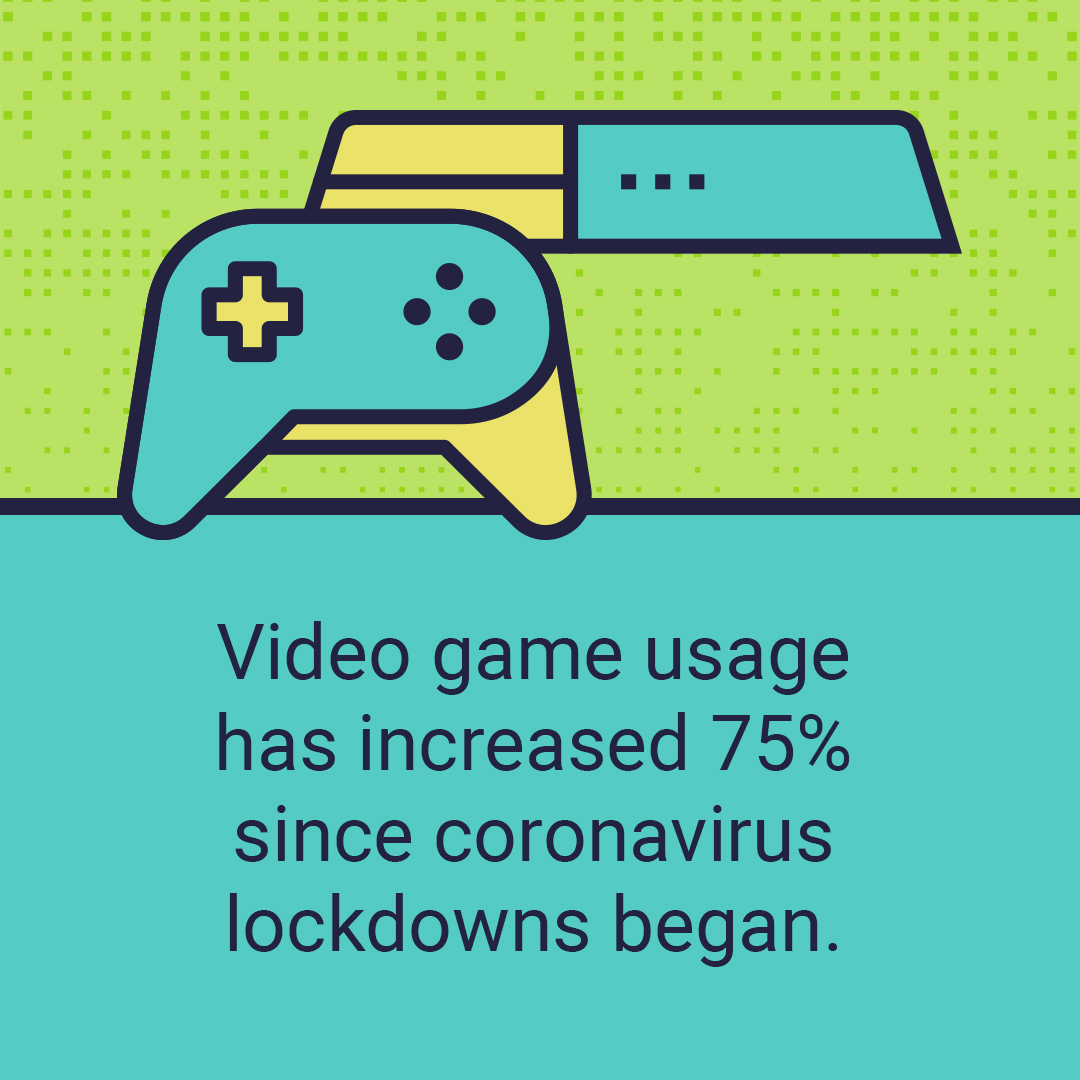Good Game, Good Privacy: Protecting Your Identity in Online Gaming

If you’ve ever worried about the amount of time you or your kids spend on online gaming, the coronavirus should put that worry to rest. Experts now say that gaming is a healthy outlet for homebound people, and open-ended games such as Minecraft and Animal Crossing are giving kids a way to play with their friends when they can’t play in person. The gaming community is even coming together to foster safety and positive behavior during the pandemic. But now there is a different reason to cause worry: as online gaming has grown in popularity, scammers and predators have also flocked to it. Here are some of the things to watch out for, and ways to protect yourself and your family as you adventure into virtual worlds.
Beware the Fakes
The gaming world is full of fake websites and apps. Some of them are simply cheap knock-offs of popular games like Fortnite or World of Warcraft. Others are designed to download malware or steal personal information. Some of the ads within games also tempt gamers to fake websites where they can supposedly download free weapons and gear for their avatars or find cheats (plug-ins to give their players extra powers or other advantages). Instead, these “freebies” may also deliver malware or steal personal information.
In the gaming world, as in the real world, it’s “Buyer beware.” Before buying or downloading anything, check online reviews. Be cautious of any mobile game that has a 5-star rating in the app store but only 5 reviews. Look carefully at the publisher’s name in the app store to be sure it’s the name of the real publisher and not a close imitation.
If you do happen to be tempted by an ad for freebies, first hover over any links to see if the destination leads to a secure website (beginning with “https:”). If it seems secure, then search online for any warnings about the site. Make sure your security software is current before downloading anything and think twice before giving personal information beyond an email address in exchange for freebies.
Guard Your Avatar
Criminals can also create all kinds of trouble by taking over gamers’ accounts. They can get hold of usernames and passwords using spyware, often downloaded through fake sites or apps. Once in, they can use your gaming identity for predatory activities against other players, steal payment information associated with your account, or they can just troll other players for the fun of causing trouble and leaving you with the consequences.
To protect your gaming accounts, again, beware of fakes, and be smart about passwords. Set strong ones, change them often, and consider using a password manager. Many gaming and streaming platforms support two-factor authentication; if it’s available, use it.
Be Your Child’s Armor
Children are at increased risk from fraudsters and predators in the gaming world. Fake websites offering freebies for popular games have been used to trick kids into entering their parents’ credit card information. Far worse, law enforcement experts say these games become “hunting grounds” for sexual predators seeking victims. Predators sometimes befriend kids under the guise of being teammates, then groom them with compliments or threats. Kids have been lured into committing sex acts within games to earn points or even for promises of money, a tactic that predators use to groom their victims.
Like all online activities, safe gaming for children requires active parental involvement. Kids of all ages need to be educated about “stranger danger” online. Most games have age ratings, so check that games are suitable before approving downloads. Younger kids should go online only in communal areas of your home, where you can monitor their gaming. Use parental controls to minimize their contact with unsafe sites and people. And, if you can, play online games with them regularly. It’s good family fun and it gives you a chance to see if their gaming buddies seem safe.
Virtual Worlds, Real Harm
Privacy issues in social media are often headline news. Gaming, not so much. But as the popularity of online gaming has grown, and especially during these days of social distancing, gaming is social media for many people. (According to Verizon, video game usage has increased 75% and video streaming has increased 12% since coronavirus lockdowns began, while social media usage has remained nearly flat.) So, it’s important to be just as careful about your and your family’s privacy in game worlds as in the real world. If bad actors are there, you don’t have to be physically present to get hurt.
About IDX
We're your proven partner in digital privacy protection with our evolving suite of privacy and identity products.